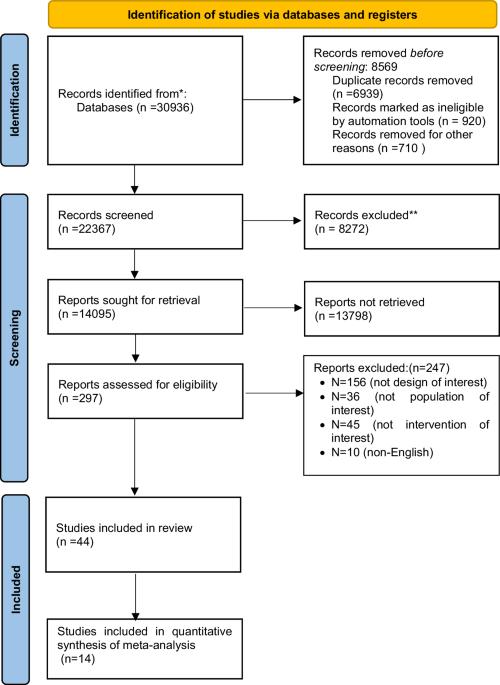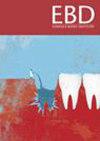Effectiveness of school-based approaches for reduction of sugar and sugar-sweetened beverages in children: a systematic review and meta-analysis
IF 2.3
Q3 Dentistry
引用次数: 0
Abstract
To verify the effectiveness of school-based interventions (SBI) aimed at reducing sugar-sweetened beverage (SSB) consumption among children to create or enhance public health initiatives. An important source of sugar consumption is SSBs, which are defined as any consumable non-alcoholic water-based beverage containing considerable amounts of free sugars. A growing number of people are using SSBs as their main source of sugar. Obesity and overweight in children and adolescents is a serious public health concern. The frequent consumption of excess amounts of SSBs is a risk factor for obesity, type 2 diabetes, cardiovascular disease and dental caries. The majority of earlier studies have concentrated on the association between SSB intake and obesity, regulatory and policy initiatives on SSB purchase and consumption. Numerous behavioural interventions have been reported to target the reduction of sugary drink consumption among children; however, there is a lack of conclusive evidence regarding their effectiveness. We aimed to evaluate the effectiveness of SBI on the factors that influence the reduction of sugary beverage consumption in a school setting. Systematic review of school-based interventions involving children. The following databases were investigated: MEDLINE/PubMed, PsycINFO, CINAHL and EMBASE. A total of forty-seven studies were included in the review. Most of the studies were found to be of moderate quality. All of the interventions, irrespective of whether they targeted individuals, their environment or both, were effective in decreasing SSB consumption. School-based interventions have demonstrated encouraging outcomes in decreasing sugary soft drink intake among teenagers. Several recommendations are made to improve future studies. The included trials demonstrated a moderate quality of evidence, suggesting that educational and behavioural interventions yielded only a modest effect in reducing sugar-sweetened beverage (SSB) consumption.

以学校为基础的减少儿童糖和含糖饮料的方法的有效性:系统回顾和荟萃分析。
目的:验证以学校为基础的干预措施(SBI)的有效性,旨在减少儿童含糖饮料(SSB)的消费,以创建或加强公共卫生倡议。背景:糖消耗的一个重要来源是SSBs,它被定义为含有大量游离糖的任何可消费的非酒精水基饮料。越来越多的人将SSBs作为主要的糖来源。儿童和青少年的肥胖和超重是一个严重的公共卫生问题。经常过量食用SSBs是肥胖、2型糖尿病、心血管疾病和龋齿的危险因素。大多数早期的研究集中在SSB摄入与肥胖之间的关系,以及对SSB购买和消费的监管和政策举措。据报道,许多行为干预措施的目标是减少儿童含糖饮料的消费;然而,缺乏关于其有效性的确凿证据。我们的目的是评估SBI对学校环境中影响含糖饮料消费减少的因素的有效性。材料和方法:系统回顾涉及儿童的学校干预措施。设置:调查了以下数据库:MEDLINE/PubMed, PsycINFO, CINAHL和EMBASE。结果:本综述共纳入47项研究。大多数研究被发现是中等质量的。所有的干预措施,无论是针对个人、环境还是两者兼而有之,都能有效地减少SSB的摄入。结论:以学校为基础的干预措施在减少青少年含糖软饮料摄入量方面显示出令人鼓舞的结果。提出了几项建议,以改进未来的研究。纳入的试验显示了中等质量的证据,表明教育和行为干预在减少含糖饮料(SSB)消费方面只产生了适度的效果。
本文章由计算机程序翻译,如有差异,请以英文原文为准。
求助全文
约1分钟内获得全文
求助全文
来源期刊

Evidence-based dentistry
Dentistry-Dentistry (all)
CiteScore
2.50
自引率
0.00%
发文量
77
期刊介绍:
Evidence-Based Dentistry delivers the best available evidence on the latest developments in oral health. We evaluate the evidence and provide guidance concerning the value of the author''s conclusions. We keep dentistry up to date with new approaches, exploring a wide range of the latest developments through an accessible expert commentary. Original papers and relevant publications are condensed into digestible summaries, drawing attention to the current methods and findings. We are a central resource for the most cutting edge and relevant issues concerning the evidence-based approach in dentistry today. Evidence-Based Dentistry is published by Springer Nature on behalf of the British Dental Association.
 求助内容:
求助内容: 应助结果提醒方式:
应助结果提醒方式:


